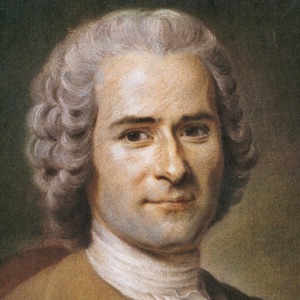
Jean-Jacques Rousseau (1712 – 1778) was a Swiss philosopher, writer, and political theorist. Although he was born in an upper-class district in Geneva, his family soon moved to a neighbourhood of craftsmen, where his father worked as a watchmaker. Here he developed a positive view of these artisans and felt their struggle against the class politics of that time. In addition to his many writings, Rousseau was an accomplished composer of many different musical forms, including seven operas. His ideas, considered controversial at times, are considered influential in the development of modern politics, economics, and education.

Quotes by Jean-Jacques Rousseau…
Be sincere with yourself. Whether men love or hate, admire or despise you, is of but little importance. Speak only what is true, do only what is right.
Liberty is not in any form of government. It is in the heart of free man; he carries it with him everywhere.
The evil done by man falls upon his own head, without making any change in the system of the world.
I have a body on which other bodies act, and which acts reciprocally upon them. This reciprocal action is certain; but my will is independent of my senses. I can either consent to, or resist their impressions. I am either vanquished or victor, and can perceive clearly within myself when I act according to my will, and when I submit to be governed by my passions. I always have the power to will.
One would be apt to think, from the murmurs of impatient mortals, that God owed them a recompense before they had deserved it, and that He was obliged to reward their virtue beforehand. No, let us first be virtuous, and rest assured we shall sooner or later be happy. Let us not require the prize before we have won the victory.
Nature never deceives us; it is always we who deceive ourselves.
There exists no other evil in nature than what you either do or suffer, and you are equally the author of both… Particular evil exists only in the sentiment of the suffering being; and this sentiment is not given to man by nature, but is of his own acquisition… Take away our errors and our vices… take away, in short, everything that is the work of man, and all that remains is good.
The highest enjoyment is that of being contented with ourselves. It is in order to deserve this contentment that we are placed here on earth and endowed with liberty.
It is the abuse of our faculties which make us wicked and miserable. Our cares, our anxieties, our griefs, are all owing to ourselves… If we could be contented with being what we are, we should have no inducement to lament our fate; but we inflict on ourselves a thousand real evils in seeking after an imaginary happiness.
Most are, in effect, deaf to that internal voice which, nevertheless, calls to them so loud and emphatically. A mere machine is evidently incapable of thinking… whereas in man there exists something perpetually prone to expand, and to burst the chains by which it is confined.
